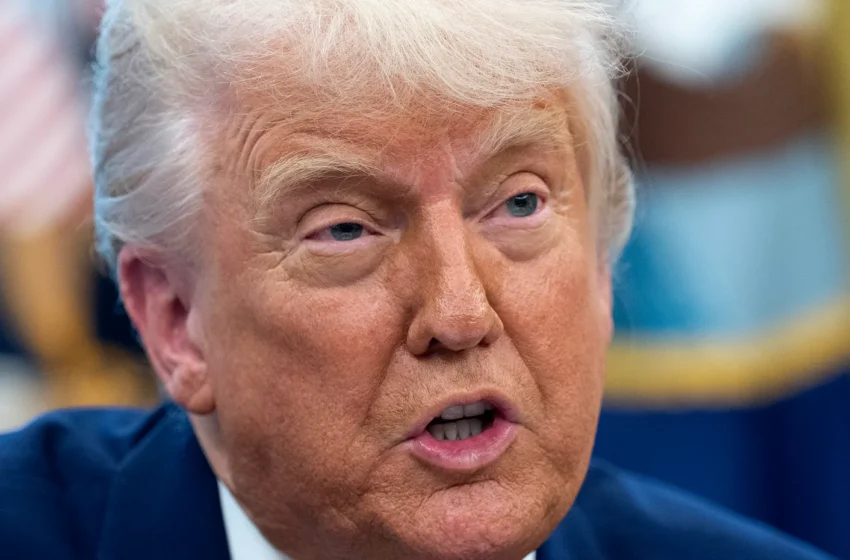What Trump’s remark about Liberia’s president reveals about western views of Africans

Trump’s “good English” comment to Liberia’s president draws criticism over Western perceptions of Africa
During a July 9 White House summit with West African heads of state, former U.S. President Donald Trump remarked on Liberian President Joseph Boakai’s “beautiful English,” asking, “Where did you learn to speak so well?” He added, “I have people at this table who can’t speak nearly as well.” On the surface, it seems like harmless flattery—but many in Liberia, and across Africa, saw it differently.
Liberia’s official language is English, a legacy of its unique founding in 1822 by freed American slaves. That makes fluent English the norm—not a novelty. This context renders Trump’s surprise-tinted praise tone-deaf, even patronizing. As Reuters noted, “eye rolls” rippled through Liberia in response .
Diplomatic Grace, Public Outcry
The Liberian government opted for measured responses. Foreign Minister Sara Nyanti emphasized that Boakai was unoffended, recognizing the country’s longstanding ties with the United States. Local media spun the visit positively, portraying the exchange as a smart diplomatic interaction. But that calm veneer masked widespread discomfort.
Across social media and pubic discourse, Liberians expressed stronger reactions. Many saw the comment as evidence of enduring Western ignorance. One Twitter user quipped, “Does Trump think Liberia doesn’t have schools?” That reaction echoed broader frustration: why should Africans be surprised to speak good English?
A Mirror on Western Surprise
Trump’s comment is a reflection of a wider Western mindset that assumes functional English—or any fluency—among African leaders is unexpected. It reveals a subtle, but persistent belief that the benchmark of education and sophistication remains tied to Western speech norms.
Liberia’s history in particular—an independent nation where English has flourished for nearly 200 years—is erased by such remarks. Instead of recognizing national development, these comments imply Africans are worthy of praise only when they meet external standards.
Colonial Shadows Still Shape Perception
There’s a deeply rooted, colonial thought-pattern in inadvertently expressing surprise at African competence. Old European and American narratives often assumed that Africans lacked formal education unless mentored by colonizers. Today’s involuntary compliment seems more like a throwback: ignorance dressed up as praise.
This isn’t merely about manners—it’s about recognition. When compliments in diplomacy focus on speech, not substance, it implies that style counts more than achievements. And yet, Liberia’s presence at the summit reflected decades of democratic governance, education systems, and global diplomacy.
U.S. President Donald Trump asked Liberian President Joseph Boakai where he learned to speak "so beautifully" during a White House meeting on Wednesday.
English is the official language of Liberia. pic.twitter.com/V77qZZPKL3
— The Associated Press (@AP) July 10, 2025
More Than Just a Slip-Up
It’s important to consider Trump’s pattern: in 2018, leaked comments referred to certain African nations as “shithole countries,” drawing global condemnation. And during his presidency, U.S. aid and diplomatic engagement with Africa, including funding to libraries and education programs, were cut sharply. For many Africans, Trump’s “beautiful English” remark was not a quirky compliment—it was another link in a chain of dismissiveness toward a continent with its own standing.
Voices Across Africa
This moment resonated far beyond Liberia. Africans worldwide critiqued the underlying assumption that speech is more remarkable than substance. If African leaders need praise for speaking well, it suggests that African competence is still viewed through a lens of skepticism.
Analysts note that these incidents contribute to a painful pattern: Africans are only celebrated when they mirror Western norms, whether in language, attire, or professional mannerisms.
Shaping the Narrative: Respecting African Agency
What’s needed is a shift toward authentic respect—valuing achievements, leadership, and cultural complexity on their own terms. It means acknowledging that Liberian presidents learned English in local schools, not on day-one visits to Western capitals.
For diplomacy to be meaningful, it must treat African partners as equals. Comments should reflect genuine engagement—focused on collaboration, challenges, and joint futures—rather than surprise at the obvious competence.
Toward Equal Footing in Global Conversations
Trump’s comment may appear minor, but the broader implications reveal a deeper cultural issue. As African leaders increasingly engage in climate negotiations, tech partnerships, regional security, and economic forums, they deserve recognition that transcends superficial praise.
This moment is less about Trump or Boakai; it’s about the global shift happening now. Africa demands to be seen for its leadership, not standardized through a colonial lens.
What Next?
Liberia’s experience shows how well-intentioned remarks can undervalue national dignity. The lesson? An ally respects for what a partner does, not just how they sound. African leadership deserves cultural awareness, not praise that unwittingly patronizes. As global diplomacy evolves, recognizing and respecting Africa’s capabilities on equal terms isn’t just polite—it’s essential.

